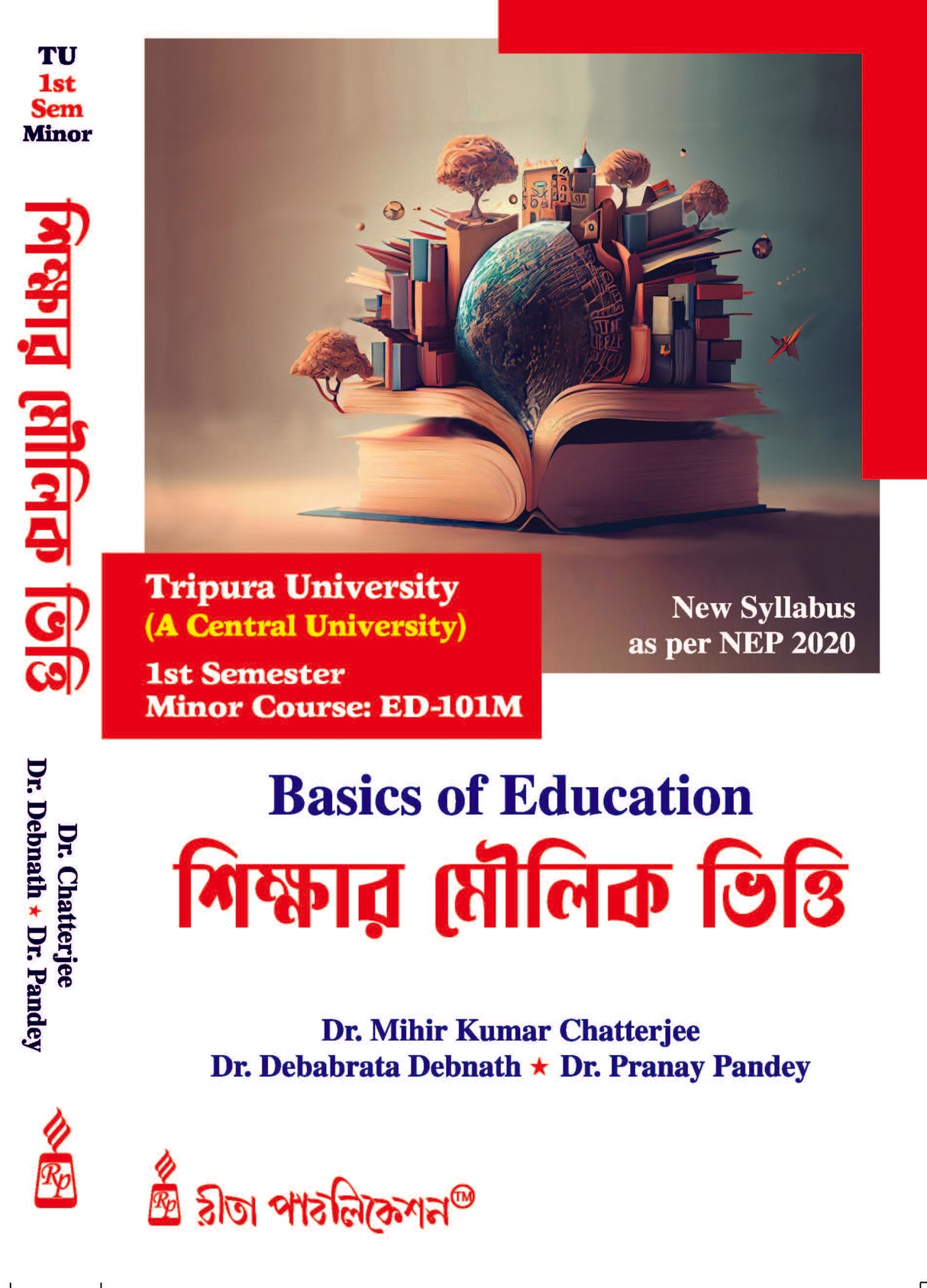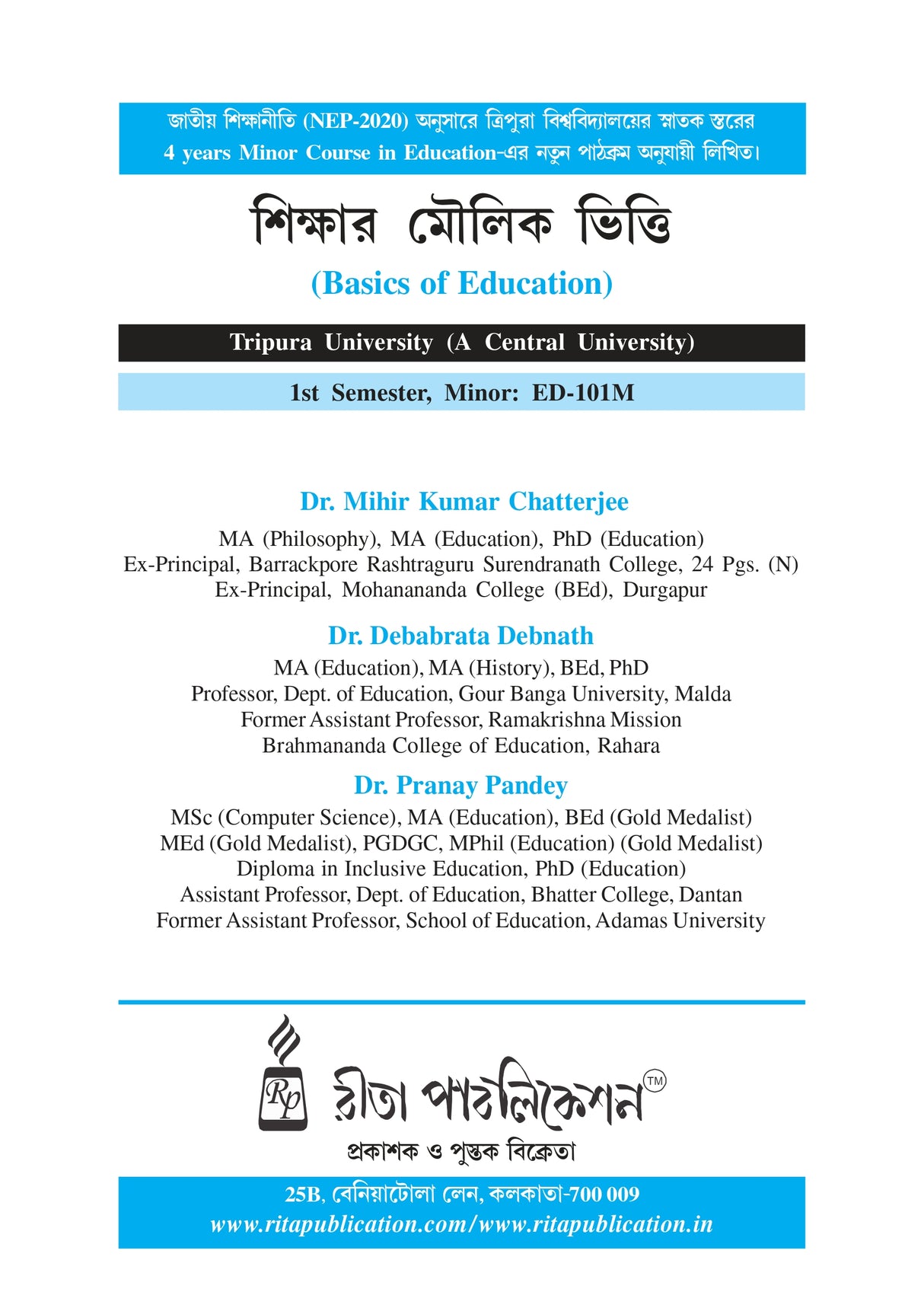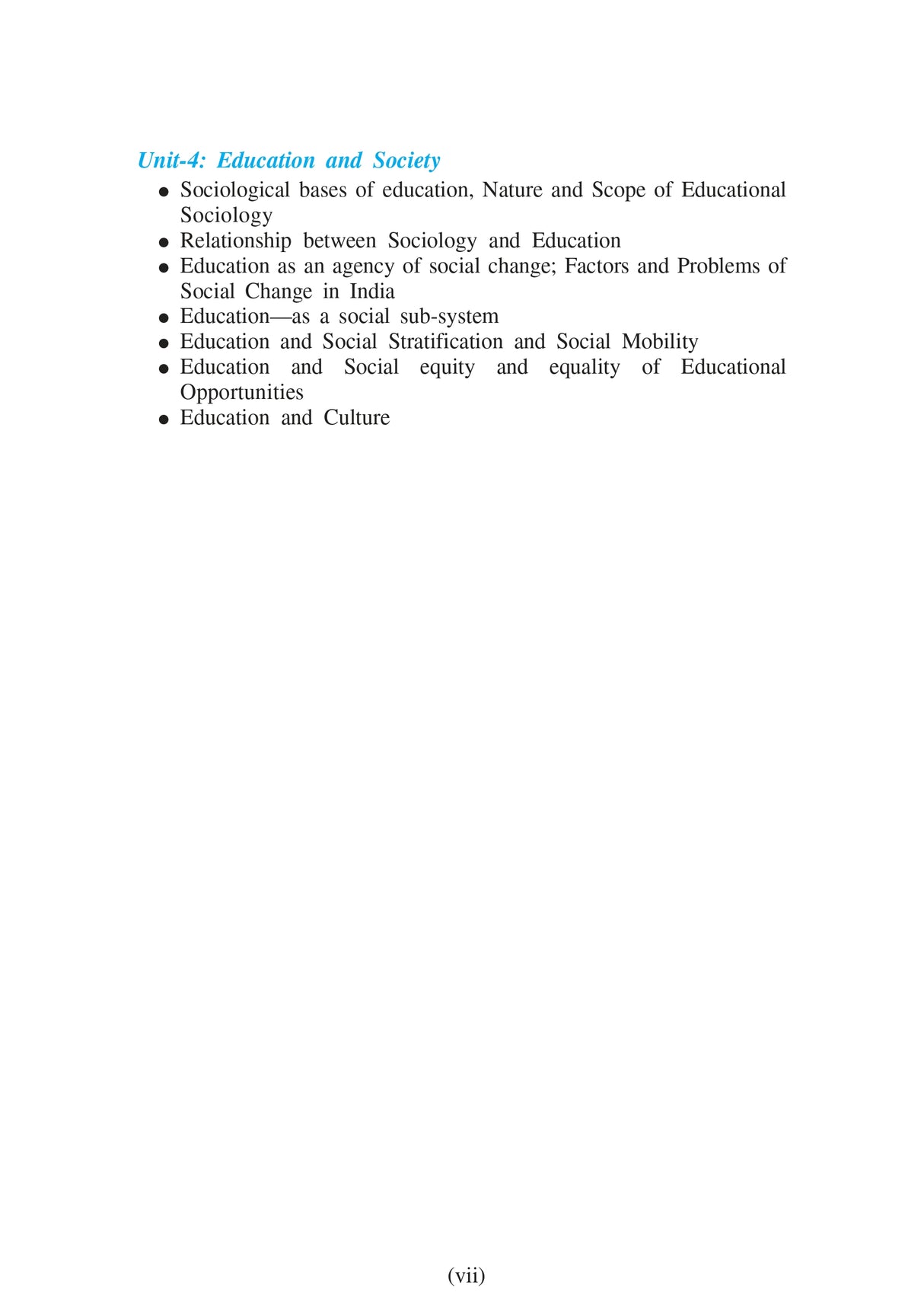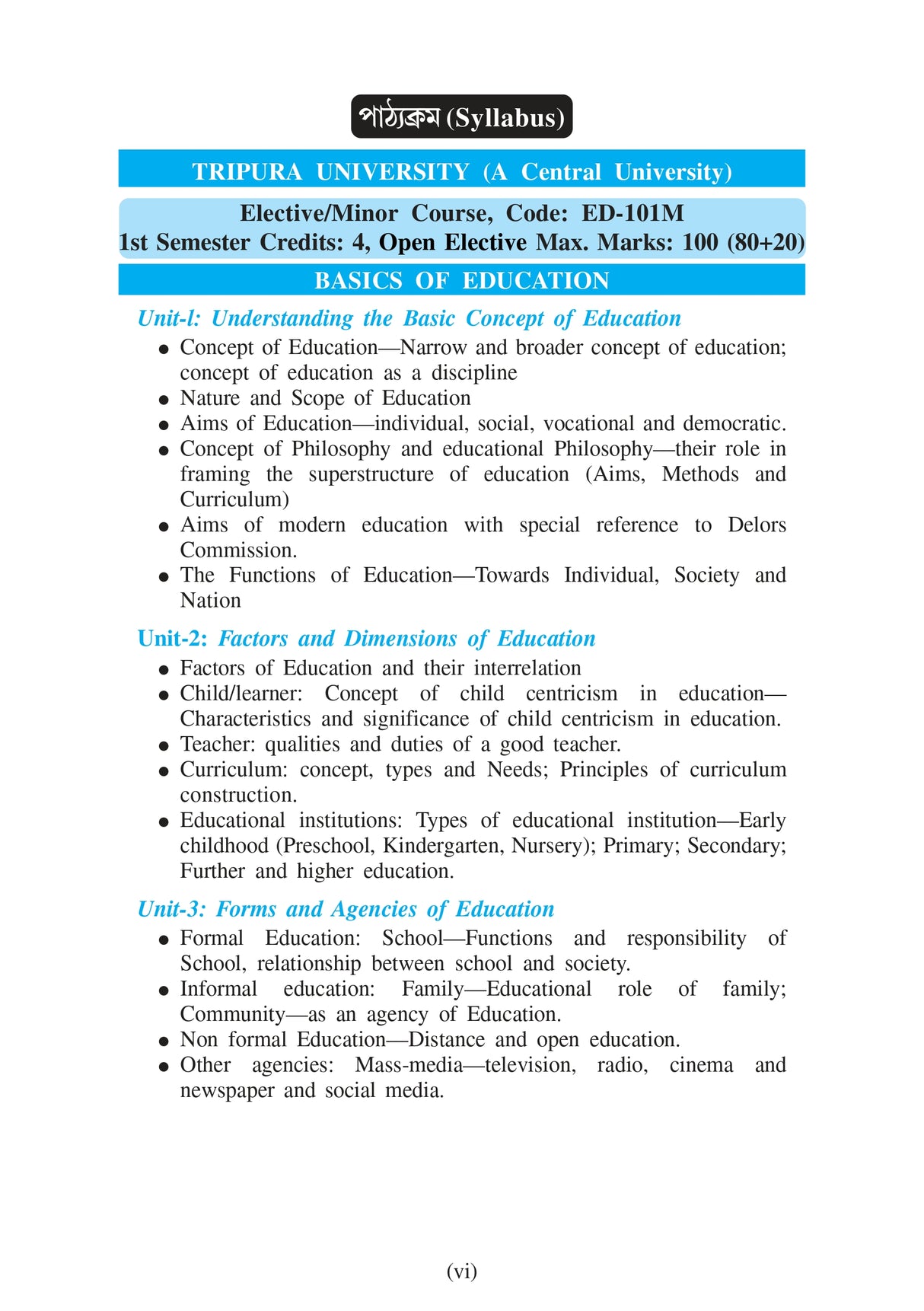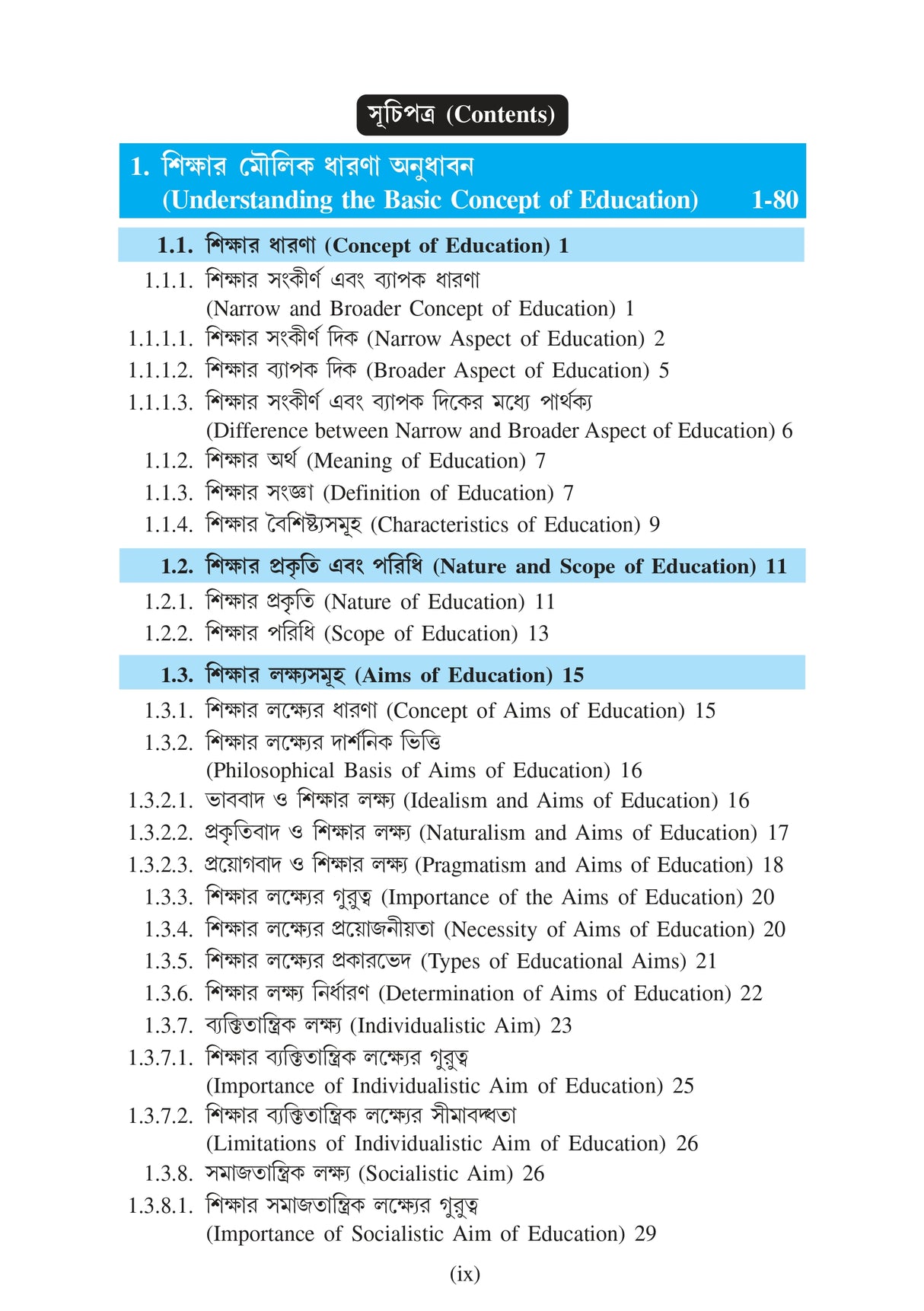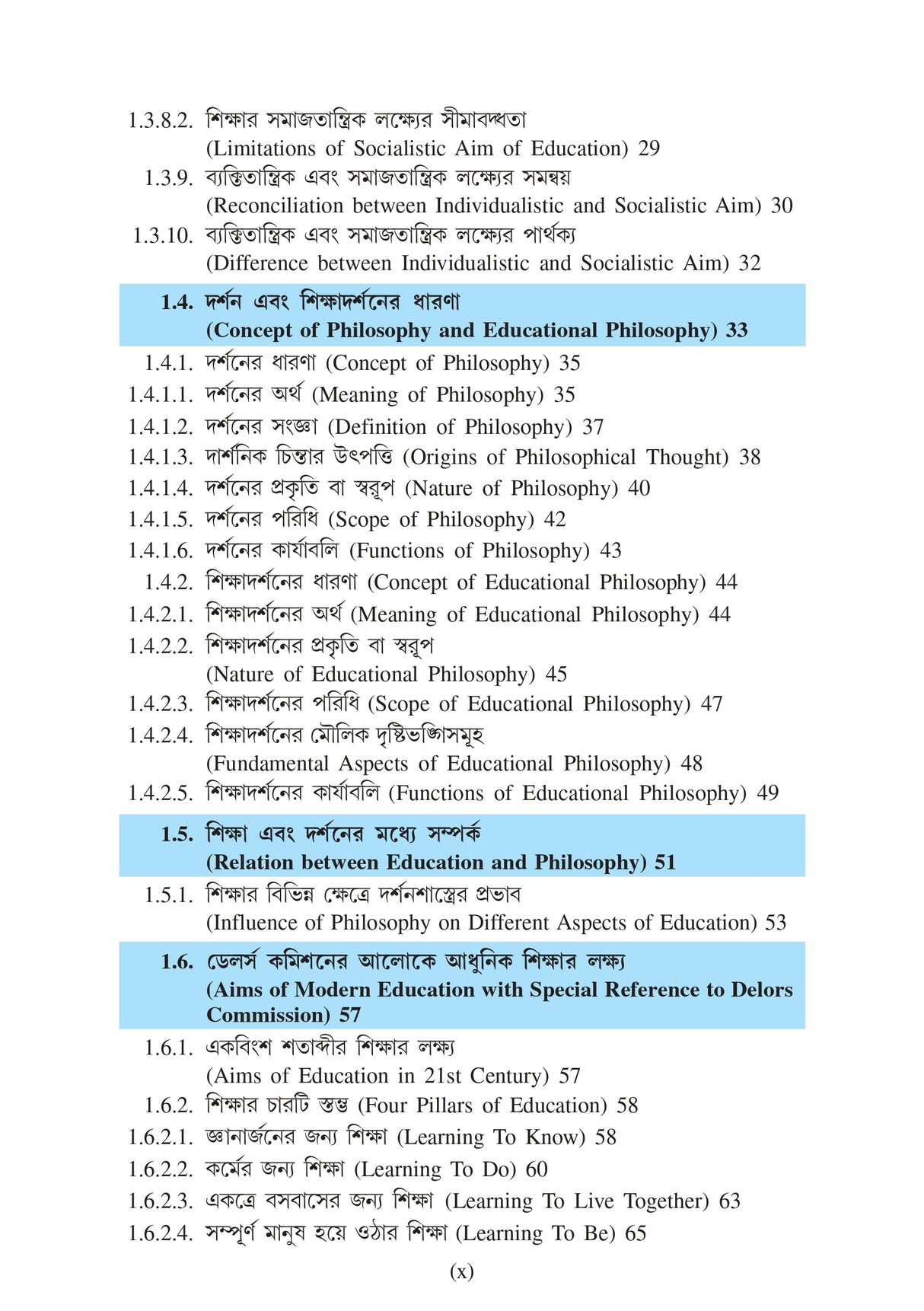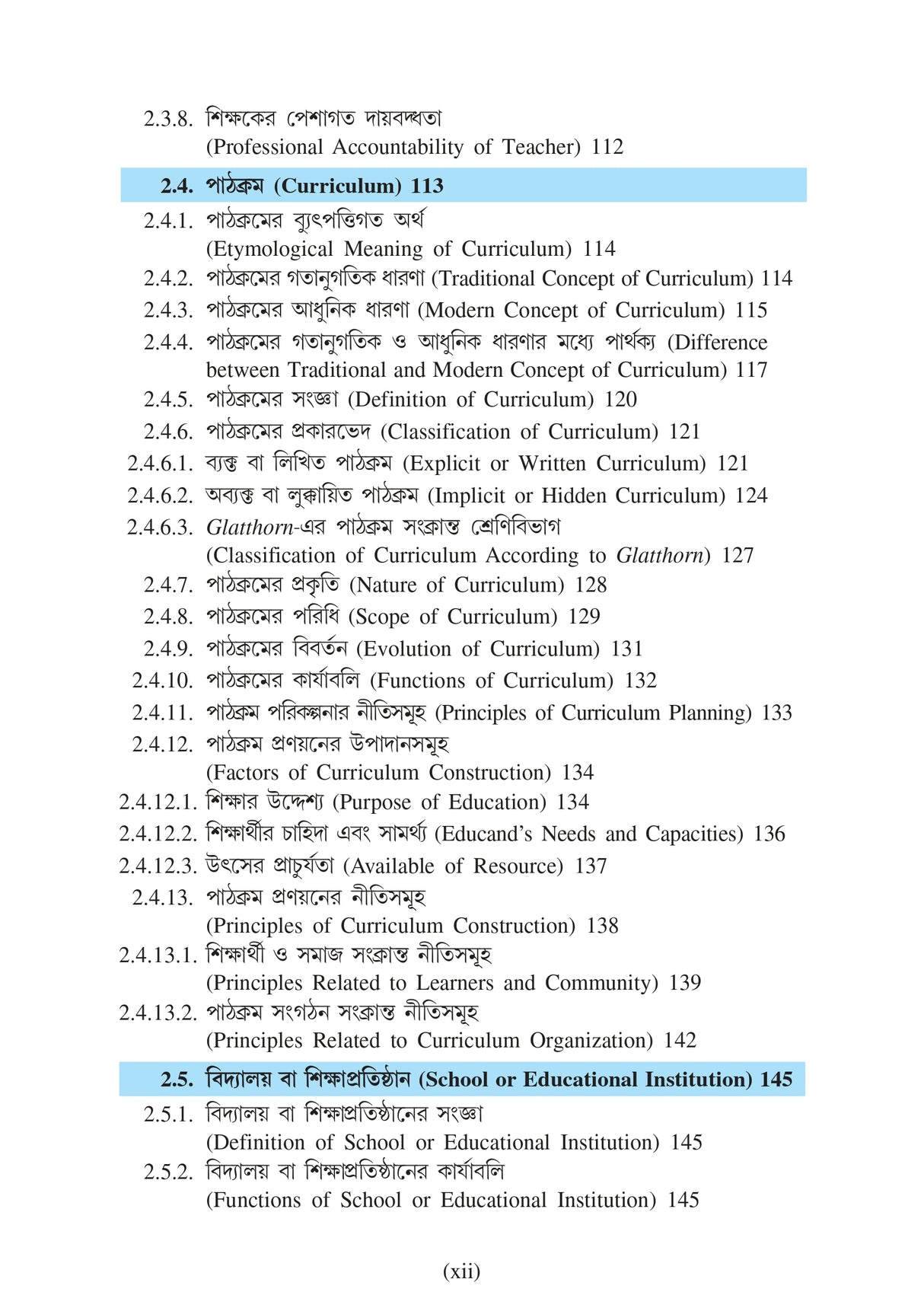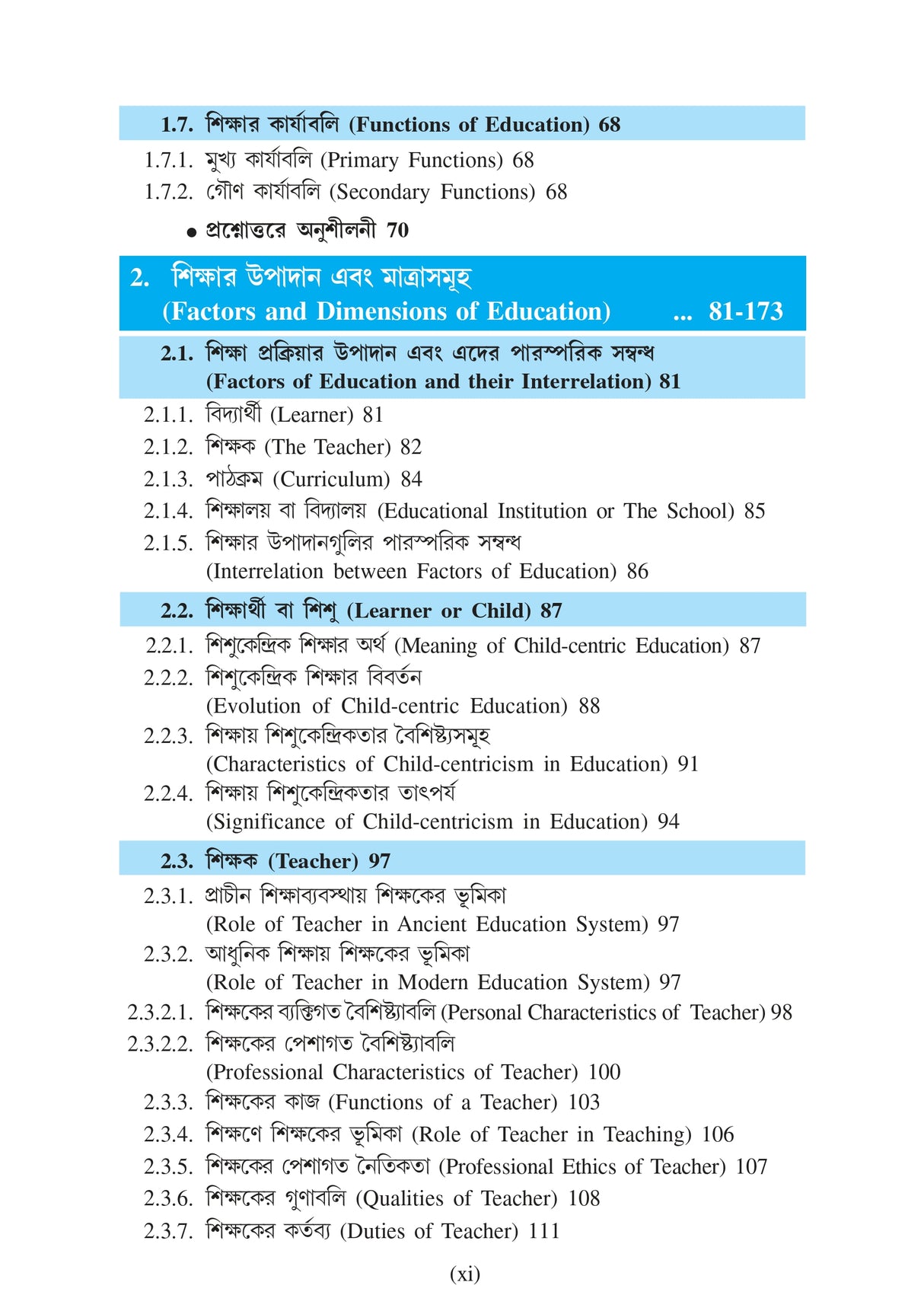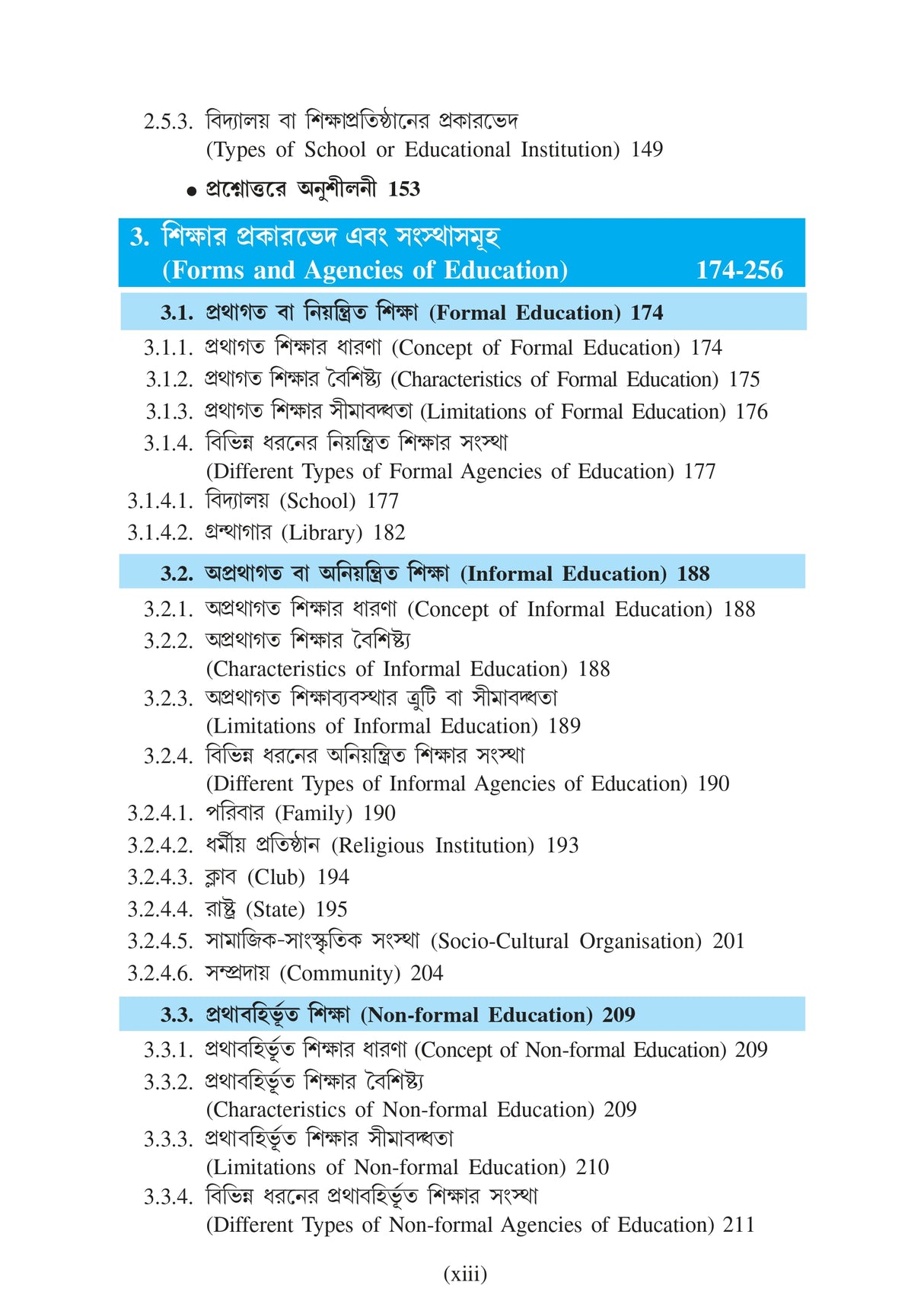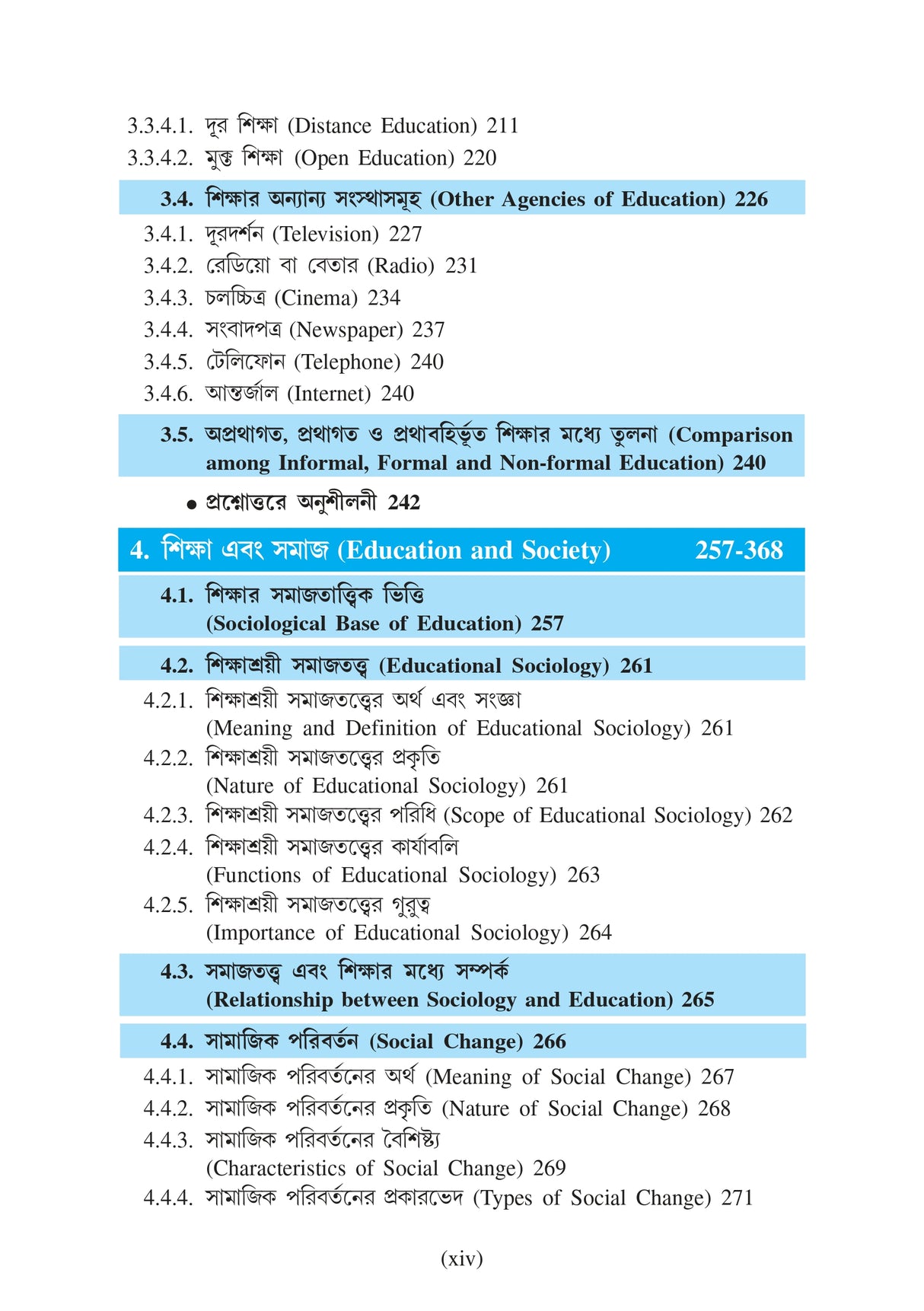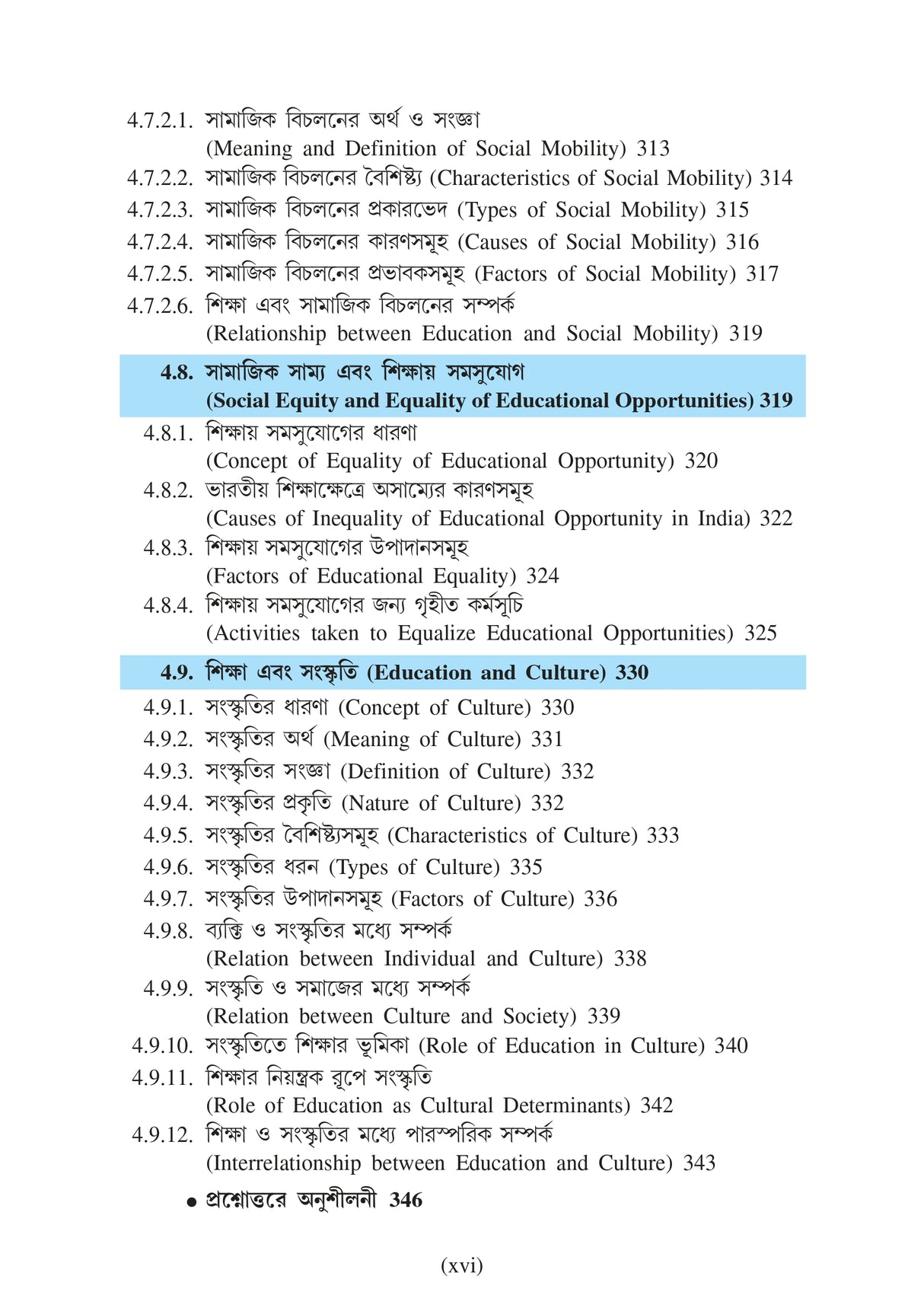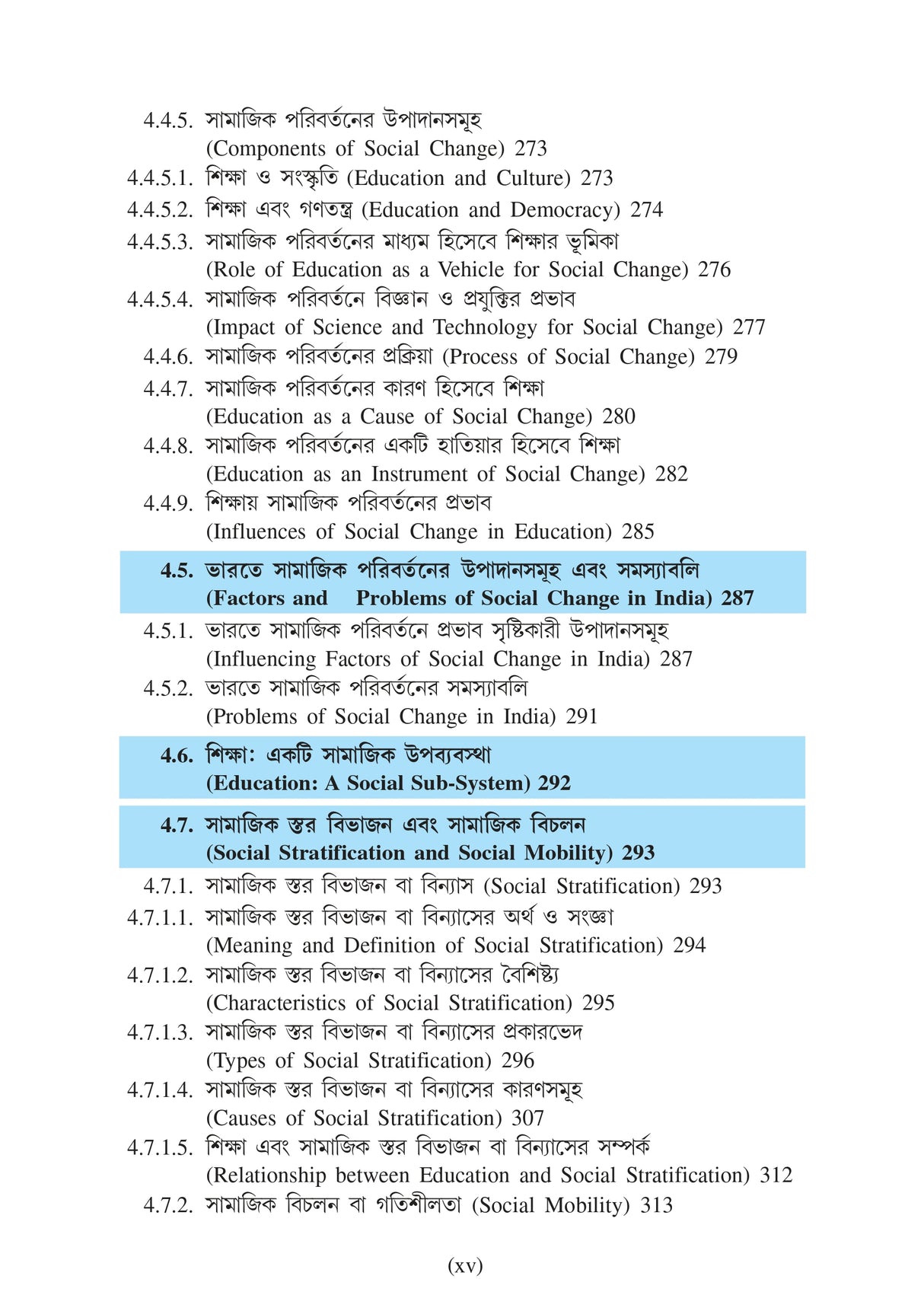Sikshar Moulik Vitti (Basics of Education)_Tripura University_1st Sem_Minor_ED101M
Sikshar Moulik Vitti (Basics of Education)_Tripura University_1st Sem_Minor_ED101M is backordered and will ship as soon as it is back in stock.
Couldn't load pickup availability
Genuine Products Guarantee
Genuine Products Guarantee
We guarantee 100% genuine products, and if proven otherwise, we will compensate you with 10 times the product's cost.
Delivery and Shipping
Delivery and Shipping
Products are generally ready for dispatch within 1 day and typically reach you in 3 to 5 days.
Authors: Dr. Mihir Kumar Chatterjee, Dr. Debabrata Debnath, Dr. Pranay Pandey
Tripura University (A Central University)
Elective/Minor Course, Code: ED-101M
1st Semester Credits: 4, Open Elective Max. Marks: 100 (80+20)
Basics of Education
Unit-l: Understanding the Basic Concept of Education
l Concept of Education—Narrow and broader concept of education; concept of education as a discipline
l Nature and Scope of Education
l Aims of Education—individual, social, vocational and democratic.
l Concept of Philosophy and educational Philosophy—their role in framing the superstructure of education (Aims, Methods and Curriculum)
l Aims of modern education with special reference to Delors Commission.
l The Functions of Education—Towards Individual, Society and Nation
Unit-2: Factors and Dimensions of Education
l Factors of Education and their interrelation
l Child/learner: Concept of child centricism in education—Characteristics and significance of child centricism in education.
l Teacher: qualities and duties of a good teacher.
l Curriculum: concept, types and Needs; Principles of curriculum construction.
l Educational institutions: Types of educational institution—Early childhood (Preschool, Kindergarten, Nursery); Primary; Secondary; Further and higher education.
Unit-3: Forms and Agencies of Education
l Formal Education: School—Functions and responsibility of School, relationship between school and society.
l Informal education: Family—Educational role of family; Community—as an agency of Education.
l Non formal Education—Distance and open education.
l Other agencies: Mass-media—television, radio, cinema and newspaper and social media.

